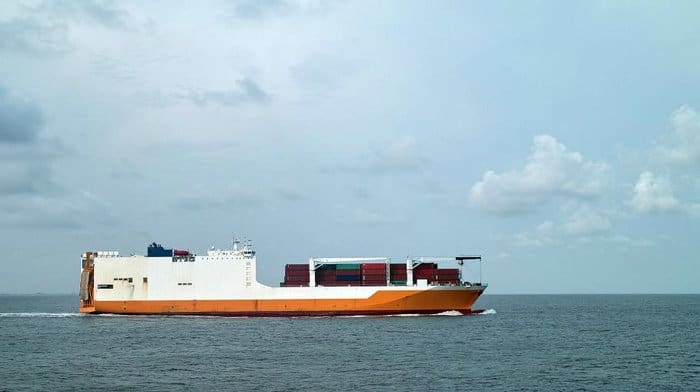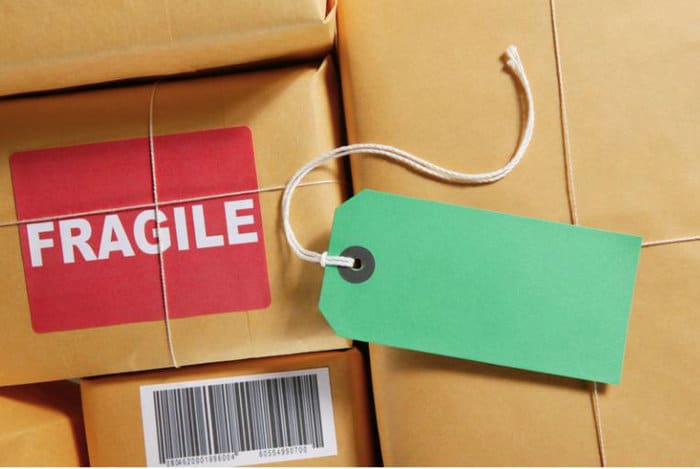
Shipping from China to Nigeria has become an integral part of international trade, especially with China’s position as a global manufacturing hub. As a business owner looking to tap into the vast array of products available in China, understanding the nuances of the shipping process is crucial. Your goods’ journey crosses diverse landscapes and involves numerous checkpoints, all of which affect the time and cost needed to bring products to your doorstep.
Navigating international logistics requires a grasp of shipping methods, customs regulations, and the implications of various freight options. Whether you choose air freight for its speed or sea freight for its cost-efficiency, each mode of transport comes with its own set of considerations. These include transit times, costs, and the necessary documentation to ensure a smooth import process into Nigeria.
Dealing with customs clearance in Nigeria is another critical step. As your products arrive, you must comply with local laws and regulations to avoid delays and additional costs. Familiarizing yourself with the required procedures, tariffs, and taxes will aid in planning for a successful importation. Understanding these key aspects ensures you make informed decisions, reduce potential risks, and optimize your shipping strategy from China to Nigeria.
Overview of Shipping Routes
When shipping from China to Nigeria, you must consider the structure and layout of the maritime routes connecting these two countries. The chosen shipping route and ports of departure and arrival can significantly affect transit times and shipping costs.
| Common Ports of Departure in China | Destination Ports in Nigeria |
| Shanghai | Lagos |
| Shenzhen | Port Harcourt |
| Ningbo-Zhoushan | Onne Port |
| Guangzhou |
Key details of the main ports:
- Shanghai: The Port of Shanghai is the world’s busiest container port and a major hub for international trade. Shipping goods from Shanghai to Nigeria typically involves trans-oceanic voyages and can accommodate various cargo sizes.
- Shenzhen: Located in Guangdong Province, the Port of Shenzhen includes multiple container terminals and offers diverse shipping services. Its strategic location near Hong Kong makes it an ideal port for exporters.
- Ningbo-Zhoushan: Combining the Port of Ningbo and the Port of Zhoushan, this port complex is crucial for cargo due to its high-capacity facilities and efficient services.
- Guangzhou: The Port of Guangzhou is another pivotal port owing to its comprehensive logistics network and direct connections to major international shipping lanes.
- Lagos: The Port of Lagos, specifically Lagos Port Complex and Tin Can Island Port, is the principal port of Nigeria. It handles most of the country’s imports and is well-suited for containers and various cargo types.
- Port Harcourt: This port functions as the gateway for goods destined for the eastern part of Nigeria. Port Harcourt is equipped to handle different cargo operations, offering an alternative to the Lagos ports.
- Onne Port: Situated in the oil-rich region, Onne Port specializes in oil and gas logistics but also serves container and general cargo handling, providing another critical entry point for shipments into Nigeria.
Shipping Methods
When shipping from China to Nigeria, there are several options for you based on your budget, time constraints, and the nature of the goods you are sending. These methods include sea freight, air freight, and express courier services, each offering different advantages.
Sea Freight Options

Sea freight is among the cheapest methods to ship large volumes of goods. There are two main types of sea freight services:
- FCL (Full Container Load): Ideal for larger shipments where you can fill an entire container. Containers are typically 20 or 40 feet in size.
- LCL (Less than Container Load): Suitable for smaller shipments that do not require a full container. Your goods are consolidated with others to fill a container.
Air Freight Options
Air freight is faster than sea freight and is suitable for high-value or perishable goods. It’s often priced by weight and volume. Key points to remember for air freight:
- Scheduled Flights: Regular flights between major airports with fixed schedules and routes.
- Charter Services: Chartering a whole aircraft might be viable for large shipments or urgent needs.
Express Courier Services
Express courier services offer door-to-door delivery and are the fastest and most convenient shipping method, albeit typically the most expensive. You can expect:
- Time-bound Deliveries: With guaranteed delivery times ranging from overnight to within a few days.
- Real-time Tracking: Most couriers provide detailed tracking, enabling you to monitor your shipment’s progress.
Customs Clearance
Navigating customs clearance is a critical step when shipping from China to Nigeria. It involves a specific set of documentation, understanding applicable duties and taxes, and awareness of prohibited and restricted items.
Documentation Required for Import
To successfully import goods from China into Nigeria, you must provide the following documents:
- Commercial Invoice: Details about the goods, including value, origin, and specifications.
- Bill of Lading or Airway Bill: Acts as a receipt for the shipment and a contract for transporting goods.
- Packing List: Specifies the contents of each package in the shipment.
- Certificate of Origin: Verifies where the goods were manufactured.
- Form M: A mandatory document to apply for import; obtained from the Central Bank of Nigeria.
- SONCAP Certificate: Shows that the goods meet the Standards Organization of Nigeria’s requirements.
Duties and Taxes
Upon arrival in Nigeria, your shipment will be subject to certain duties and taxes, which vary depending on the nature and value of the imported goods. Key points to note:
- Value Added Tax (VAT): A 7.5% VAT is generally applied to goods.
- Import Duty: This can range from 0% to 35%, depending on the goods’ classification under the Nigerian Customs Service.
- CET Levy: The Common External Tariff (CET) levy may apply to your goods as established by the Economic Community of West African States (ECOWAS).
- CISS: Comprehensive Import Supervision Scheme levy is charged at 1% of the FOB value of all imports.
Prohibited and Restricted Items
Certain goods are not allowed into Nigeria or require specific permits and approval before importation. It’s essential to be aware of these restrictions to avoid delays or seizure of your goods. Examples include:
- Prohibited Items: Narcotics, counterfeit currency, pornographic materials, and all forms of used motor vehicles above fifteen years from the year of manufacture.
- Restricted Items: Firearms and ammunition, live or dead birds, including frozen poultry, and hazardous waste require special permits from the appropriate Nigerian authorities.
Transit Times
When shipping from China to Nigeria, transit times are crucial to plan your supply chain efficiently. Transit times may vary based on the mode of transport: sea or air.
Estimated Sea Transit Times
Shipping by sea is generally a slower option but can accommodate larger volumes at a lower cost. Typical sea freight transit times from China to Nigeria are:
| Sea Freight Routes | Transit Times |
| Shanghai to Lagos | 30-45 days |
| Ningbo to Lagos | 30-40 days |
| Guangzhou to Lagos | 35-50 days |
These estimates can be impacted by factors such as weather conditions, port congestion, and customs clearance procedures.
Estimated Air Transit Times
Air freight is faster but comes at a higher cost, making it more suitable for time-sensitive or high-value goods. Estimated air transit times from China to Nigeria are often within:
| Air Freight Routes | Transit Times |
| Beijing to Lagos | 6-12 days |
| Shanghai to Lagos | 5-10 days |
| Guangzhou to Lagos |
These times can vary depending on the airline’s routing, frequency of flights, and cargo handling efficiency at both origin and destination airports.
Costs of Shipping
Shipping from China to Nigeria incurs various costs. Understanding these costs ensures you can budget effectively for your imports.
Factors Affecting Freight Costs
Several factors influence the total freight cost when shipping from China to Nigeria. These factors include:
- Volume and weight of shipment: Freight charges often depend on the volumetric weight (size of package) or the actual weight of your shipment, whichever is greater.
- Type of transport: The method of transportation, be air freight or sea freight, has a significant impact on cost. Air freight is typically more expensive than sea freight.
- Distance and transit time: Urgency and distance covered also determine the cost. Quicker delivery times can lead to higher prices.
- Seasonal demand: During peak seasons, like before major holidays, freight costs can rise due to increased demand.
- Additional services: Services like door-to-door delivery, customs clearance, and insurance will add to the total cost.
Understanding Freight Quotes
When you receive a freight quote from a logistics company, it will typically include the following charges:
- Freight charge: Base rate depending on the type of shipping and weight/volume of the goods.
- Fuel surcharge: An additional fee that covers fluctuating fuel prices.
- Documentation fees: Costs associated with handling necessary shipping documentation.
- Port charges: Fees charged by both the port of departure in China and the destination port in Nigeria.
- Customs clearance fees: Costs for passing goods through customs barriers.
- Insurance: Optional coverage for your shipment in case of loss or damage.
It’s important you read the quote thoroughly to understand all the included costs and ensure there are no hidden charges.
Insurance for Shipments
When shipping from China to Nigeria, it’s crucial to ensure your goods are protected. Shipping insurance helps safeguard your investment against loss, damage, or theft during transit.
Types of Shipping Insurance
- Carrier Liability Insurance: This basic coverage is often included by default. However, it typically provides limited compensation and may not cover the full value of your shipment.
- All-Risk Insurance: This comprehensive option covers all potential risks, but there are usually exclusions, so it’s important to read the policy carefully.
- Named Perils Insurance: This policy covers only the risks specifically named in the policy, such as theft or fire.
- General Average Insurance: In the case of a general average declaration, this provides coverage for any costs you are required to pay.
How to Get Shipping Insurance
- Assess Your Needs: Review the nature of your goods and the risks they may face during shipment.
- Compare Providers: Look at different insurance companies, and compare their policies, exclusions, and premiums.
- Required Documentation: Prepare the necessary documents, including a detailed inventory list and commercial invoice.
- Policy Purchase: Once you have chosen a provider, you can usually purchase coverage directly through them or through a broker.
- Claims Process: Familiarize yourself with the procedure for filing a claim in case of loss or damage.
Packaging and Labeling Requirements

When exporting goods from China to Nigeria, it is crucial that you adhere to specific packaging and labeling requirements to ensure the safe and compliant transit of your products.
Packaging Best Practices
Your products need robust packaging for international travel. You should:
- Use Durable Materials: Opt for high-quality, strong materials like corrugated cardboard boxes for lightweight items and wooden crates for heavier goods.
- Protect Contents: Employ adequate cushioning materials such as bubble wrap or styrofoam to protect against shocks and vibrations.
- Weatherproof Packaging: Ensure the packaging is resistant to environmental factors like moisture, especially for sea freight.
Labeling for International Shipments
Accurate and comprehensible labeling is non-negotiable. Your labels must include:
- Consignee and Shipper Information: Clearly print the name, address, and contact details of both the consignee and shipper.
- Country of Origin: Legibly state “Made in China” on each package.
- Destination Details: Include the destination country’s name in bold letters, which, in this case, is “Nigeria”.
- Handling Instructions: If applicable, use international pictorial symbols to show handling instructions such as “Fragile”, “This side up”, or “Keep dry”.
Remember, improper packaging or labeling can lead to damage, loss, or delays in your shipment and potentially cause issues with customs clearance.
E-commerce and Dropshipping Considerations
When engaging in e-commerce and dropshipping from China to Nigeria, your shipping strategy and the management of delivery expectations are crucial for maintaining customer satisfaction.
Shipping Strategies for Online Retailers
For successful shipping practices, it’s vital to choose a dependable shipping partner known for their proficiency in handling international deliveries. You should assess the following:
- Carrier Reliability: Select carriers with a track record of timely deliveries to Nigeria.
- Shipping Methods: Offer diverse options, from economical bulk shipping to expedited air freight.
- Customs and Duties: Familiarize yourself with Nigerian customs regulations to avoid unexpected delays or charges.
- Packaging: Ensure products are appropriately packed for long-distance transport to mitigate the risk of damage.
Managing Delivery Expectations
Clear communication with your customers regarding shipping timelines is essential. Adhere to these guidelines:
- Transparency: Provide accurate shipping timelines and updates throughout the delivery process.
- Tracking: Implement a reliable tracking system to allow customers to monitor their orders.
- Customer Service: Establish a responsive customer service channel to address any shipping concerns promptly.
- Policy Clarity: Ensure your shipping and returns policies are well-articulated and visible to customers before purchase.
Legal and Regulatory Considerations
When shipping from China to Nigeria, it’s crucial you understand the international laws governing shipping and the specific import regulations of Nigeria. Missing out on these details could lead to costly delays or legal issues.
International Shipping Laws
You must adhere to various international treaties and agreements when shipping goods from China to Nigeria. The most pertinent include the International Maritime Organization (IMO) regulations, which govern the safety, security, and environmental performance of international shipping. Ensure your cargo is properly classified according to the Harmonized System (HS), a standardized numerical method for classifying traded products used by customs authorities worldwide.
Nigerian Import Regulations
Nigeria’s import regulations are enforced by the Nigerian Customs Service (NCS). Before shipping, verify that your goods are not on the list of prohibited imports, which includes items such as narcotics, firearms, and hazardous waste. Compliance with NCS procedures requires:
- An accurate and complete Bill of Lading
- A Certificate of Origin
- An Import Duty payment, calculated based on the current Nigerian tariff
- Necessary permits for restricted items
- Ensuring your goods meet the Standards Organization of Nigeria (SON) requirements
Non-compliance could result in refused entry of your goods into Nigeria, fines, or other penalties.
Why Choose Us? Luckystar Logistic
Luckystar, founded in 2022, is a distinguished member of the Federal Maritime Commission (FMC) and operates as a Non-Vessel Operating Common Carrier (NVOCC). The freight forwarding company primarily serves China, the USA, Canada, and Europe, striving to offer top-notch service quality at lower costs. With a core team possessing over 20 years of logistics experience, Luckystar brings substantial expertise to the table. Since its establishment, the shipping company has remained steadfast in its commitment to offering global door-to-door shipping solutions, focusing on reliability, flexibility, and promptness.
We leverage our route knowledge and relationships to optimize logistics, balancing cost, speed, and reliability. We offer the best solution and shipping service from China to Nigeria.
Please contact us for further assistance if you have any other questions or need more details on the freight service. We strive to help businesses make informed freight mode selections and facilitate smooth trade flows between China and Nigeria.
